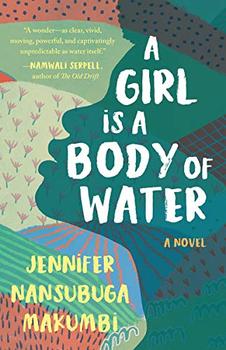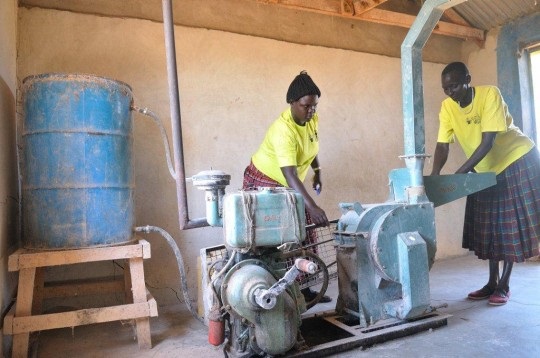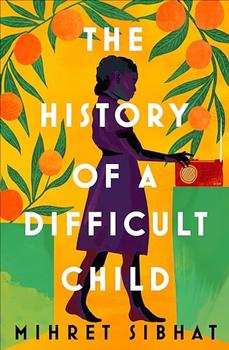Summary | Excerpt | Reviews | Beyond the book | Read-Alikes | Genres & Themes | Author Bio

International-award-winning author Jennifer Nansubuga Makumbi's novel is a sweeping and powerful portrait of a young girl and her family: who they are, what history has taken from them, and--most importantly--how they find their way back to each other.
Published as The First Woman in the UK.
In her twelfth year, Kirabo, a young Ugandan girl, confronts a piercing question that has haunted her childhood: who is my mother? Kirabo has been raised by women in the small village of Nattetta―her grandmother, her best friend, and her many aunts, but the absence of her mother follows her like a shadow. Complicating these feelings of abandonment, as Kirabo comes of age she feels the emergence of a mysterious second self, a headstrong and confusing force inside her at odds with her sweet and obedient nature.
Seeking answers, Kirabo begins spending afternoons with Nsuuta, a local witch, trading stories and learning not only about this force inside her, but about the woman who birthed her, who she learns is alive but not ready to meet. Nsuuta also explains that Kirabo has a streak of the "first woman"―an independent, original state that has been all but lost to women.
Kirabo's journey to reconcile her rebellious origins, alongside her desire to reconnect with her mother and to honor her family's expectations, is rich in the folklore of Uganda and an arresting exploration of what it means to be a modern girl in a world that seems determined to silence women. Makumbi's unforgettable novel is a sweeping testament to the true and lasting connections between history, tradition, family, friends, and the promise of a different future.
A fascinating journey into Ugandan culture. The author uses her gifts for crafting narrative and language to examine the particulars of a patriarchal and storytelling culture and how Christianity impacts and challenges families and social structures (Claire M). It was quite an experience traveling to Uganda through this book, learning about this rich culture: family, village life, beliefs and the unrest and civil war in the 1980s. I loved the storytelling within the storytelling. It was like sitting around a fire and listening to your grandmother tell tales of long ago about why life is the way it is now. A very captivating story of a young girl coming of age: falling in love, attending school, experiencing pain. But through it all, she endures (Sonia F)...continued
Full Review
(782 words)
This review is available to non-members for a limited time. For full access,
become a member today.
(Reviewed by First Impressions Reviewers).
 In A Girl Is a Body of Water, set in the 1970s-'80s, Jennifer Nansubuga Makumbi presents a compelling protagonist named Kirabo who is coming of age in Uganda and learning what it means to be a woman from her grandmother, aunts and other women in her village. Like most cultures, Ugandan society is largely patriarchal in structure. Women are generally expected to care for the household and children, despite the fact that many also perform paid labor outside of the home. A 2018 report by OXFAM indicates that it is viewed as socially unacceptable for men to engage in household duties because these are traditionally "a woman's task." The same study notes that 62 percent of women surveyed reported their husbands having paid a "bride price"—...
In A Girl Is a Body of Water, set in the 1970s-'80s, Jennifer Nansubuga Makumbi presents a compelling protagonist named Kirabo who is coming of age in Uganda and learning what it means to be a woman from her grandmother, aunts and other women in her village. Like most cultures, Ugandan society is largely patriarchal in structure. Women are generally expected to care for the household and children, despite the fact that many also perform paid labor outside of the home. A 2018 report by OXFAM indicates that it is viewed as socially unacceptable for men to engage in household duties because these are traditionally "a woman's task." The same study notes that 62 percent of women surveyed reported their husbands having paid a "bride price"—...
This "beyond the book" feature is available to non-members for a limited time. Join today for full access.

If you liked A Girl is A Body of Water, try these:

The History of a Difficult Child
by Mihret Sibhat
Published 2024
A breathtaking, tragicomic debut novel about the indomitable child of a scorned, formerly land-owning family who must grow up in the wake of Ethiopia's socialist revolution

The Office of Historical Corrections
by Danielle Evans
Published 2021
The award-winning author of Before You Suffocate Your Own Fool Self brings her signature voice and insight to the subjects of race, grief, apology, and American history.
It was one of the worst speeches I ever heard ... when a simple apology was all that was required.
Click Here to find out who said this, as well as discovering other famous literary quotes!